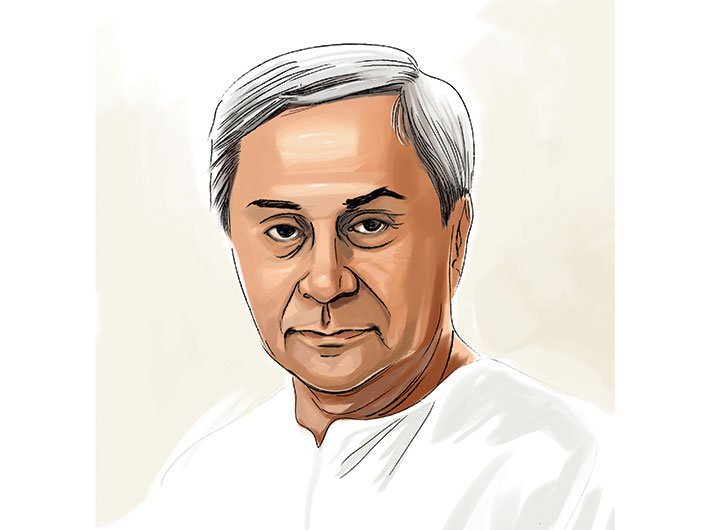The opposition in Odisha was taken by surprise at the alacrity with which the Biju Janata Dal (BJD) government amended the Odisha State Commission for Backward Classes Act, 1993. The resolution in the assembly enabled the Commission to undertake survey of the social and educational conditions of the people belonging to the backward classes. Left with little choice, both Bharatiya Janata Party (BJP) and the Congress had to support it and it was passed unanimously.
Tabling the bill for the formation of the commission in the assembly last month, chief minister Naveen Patnaik said, “We are commemorating the 150th birth anniversary of Mahatma Gandhi. As a fitting tribute to Mahatma and his ideals, it is important that the state takes up the survey of the backward classes.
“But, unfortunately, the state doesn’t have access to any recent data on this as the last census was done in 1931 which is almost 90-year old. This data is not enough for accurate and focused planning to reach out to the backward classes of the society,” he said.
However, not only the opposition, even experts are sceptical that the move may not have the desired effects. While the principal opposition party, BJP, termed it as a very late reaction by the state government and questioned its motive behind playing the “caste card”, the Congress thought it was a political gimmick. Both the parties believed the government lacked the intent and seriousness about the development of the backward classes.
“Sometimes governments take decisions for the development of the people, and at other times, for political benefits. But, all decisions of the Naveen Patnaik government have always been to gain political capital. Naveen Babu has remembered the OBCs [other backward classes] because of the urban local body and panchayat elections,” said senior BJP leader and Bargarh MP Suresh Pujari.
“If the chief minister was committed to the development of the OBCs, why didn’t he do so in the last 20 years?” asked Pujari. “The state government lacks both intent and honesty. I am apprehensive about the future of this decision,” he added.
Though the elections to the urban local bodies (ULBs) are likely later this year, the panchayat polls are still two years away.
“Naveen is known for his political stunts; it’s just another stunt, entirely meant for votes. The government has constituted the commission for the sake of it,” senior Congress leader Panchanan Kanungo said.
The BJD rubbished the opposition’s charges. “People of the state will decide whether it’s good for the state or not. After all, the opposition has supported our government’s move,” senior BJD leader Amar Prasad Satpathy said.
Incidentally, a day after being pulled up by the National Commission for Backward Classes (NCBC) chairperson, Bhagwan Lal Sahni, who, during his visit to Odisha pointed out that the state had not provided reservation for OBCs in jobs and educational institutes, the state government constituted the Odisha State Commission for Backward Classes on February 12 and appointed retired Odisha High court judge Raghunath Biswal as its chairperson.
The constitution of the commission came after no response was received from the centre on Odisha’s demand for an enumeration of backward classes as part of the 2021 census. A formal request was made by Odisha to the centre after a resolution was passed by the state cabinet on January 11.
Though the OBCs account for 54 percent of the state’s population, caste has never been a factor in Odisha politics. The state has never witnessed any serious caste-based campaigning in elections. Neither the tribal nor dalits, who form 24 and 17 percent of Odisha’s population respectively, have voted along caste lines.
As a leader, Patnaik remains enviably popular in the state and his BJD has registered thumping victories in successive elections. In the 2019 elections, despite the BJP’s upsurge, the BJD won 113 seats in the 147-member Odisha assembly. However, the saffron party managed to improve its Lok Sabha seats tally to eight from one in 2014 and its vote share jumped to 32.6 percent from about 18 percent in 2014.
Since Narendra Modi came to power at the centre in 2014, Odisha has been on the constant radar of the BJP. In 2017, the three-tier panchayat elections saw the BJP’s position rise from 36 seats in 2012 to 296, an almost tenfold gain. However, with its ‘rock solid’ grassroots level network, the BJD, it is widely perceived, has no immediate threat from any of its adversaries.
Patnaik, many believe, has taken up the OBC issue to thwart the BJP’s attempts of the last few years to consolidate the support of the Paika or Khandayat castes behind it. The BJP had observed a number of events including the bicentenary of the Paika Bidroha (rebellion) against the British and promised a memorial for the fallen Paikas on the foothills of a mountain close to Bhubaneswar. While the Khandayats (22 percent of Odisha’s population) are in the state’s SEBC list, they don’t figure in the central list of OBCs. “Naveen wants to play safe and have the support of this segment on his side,” a political commentator observed.
